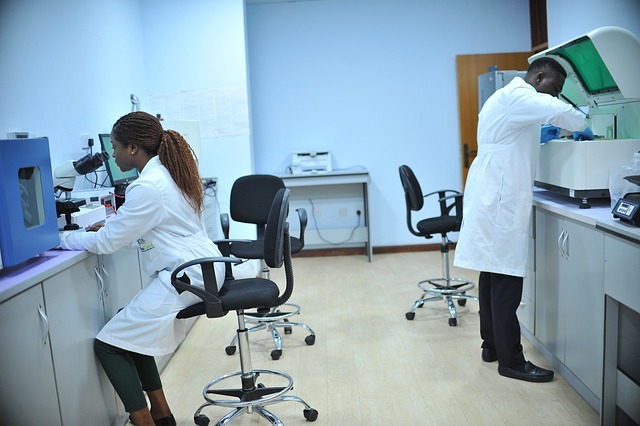The United Kingdom is a sought-after destination for Nigerian nurses aiming to broaden their knowledge and advance their careers. One crucial question arises for those pursuing this goal: Can a Nigerian nurse work in the UK without taking the IELTS exam? This blog post aims to answer this question by exploring the options and opportunities available for Nigerian nurses aspiring to join the UK healthcare system without the need for IELTS certification
Can a Nigerian nurse work in the UK without IELTS?
Yes, Nigerian nurses can work in the UK without IELTS. Recent changes in UK work visa policies offer alternative pathways, making it possible for qualified nurses to explore employment opportunities without the mandatory IELTS certification.
Overview of UK Work Visa Requirements for Nurses
Embarking on a career journey as a nurse in the United Kingdom is an exciting prospect for many healthcare professionals worldwide, including those from Nigeria. However, before you pursue such adventure, it’s crucial for you to have a comprehensive understanding of the UK work visa requirements tailored for nurses. Below is an in-depth overview of the key components involved, shedding light on the essential elements that Nigerian nurses need to consider when exploring opportunities in the UK.
You can also check here to know if relocating to the UK is worth it or not
Understanding the Tier 2 (General) Visa:
For nurses seeking employment in the UK, the Tier 2 (General) Visa is the primary pathway. This visa category is designed for skilled workers from outside the European Economic Area (EEA) and Switzerland, making it a relevant option for Nigerian healthcare professionals. To qualify for this visa, nurses must secure a job offer from a UK employer with a valid Certificate of Sponsorship (CoS).
Certificate of Sponsorship (CoS):
The CoS is a fundamental document in the Tier 2 (General) Visa application process. It is an official endorsement from the prospective employer, affirming the need for the nurse’s skills and expertise in their organization. Obtaining a CoS is a crucial step that requires collaboration between the nurse and the UK employer, emphasizing the importance of a clear and committed professional relationship.
Professional Registration:
Another pivotal requirement for Nigerian nurses aspiring to work in the UK is professional registration. The Nursing and Midwifery Council (NMC) is the regulatory body overseeing nursing professions in the UK. Nurses must complete the NMC registration process, ensuring that their qualifications align with the standards set by the council. This step not only establishes professional credibility but is also a prerequisite for securing a Tier 2 (General) Visa.
Language Proficiency:
While IELTS certification is a standard measure of English language proficiency, recent changes in policies have introduced flexibility in meeting this requirement. Nurses can now provide evidence of their English language skills through alternative means, such as achieving the required scores in the Occupational English Test (OET) for medicine or nursing. This adjustment widens the options for Nigerian nurses who may find IELTS challenging.
Financial Requirements:
To ensure that incoming nurses can support themselves in the UK, financial criteria must be met. The UK government sets specific thresholds, including a minimum salary requirement. It’s essential for nurses to be aware of these financial stipulations, as they directly impact the success of their visa application.
Duration of Stay:
The Tier 2 (General) Visa allows nurses to work and live in the UK for an initial period, typically up to five years. Upon completion of this period, nurses have the option to extend their visa or explore other pathways, including permanent residency options. Understanding the timeline is crucial for Nigerian nurses planning their professional journey in the UK.
The process of obtaining a UK work visa for Nigerian nurses involves navigating several key requirements. From securing a CoS to meeting professional registration standards and addressing language proficiency, each step is integral to a successful application. As the landscape evolves, staying informed about the nuances of UK work visa requirements ensures that Nigerian nurses can confidently explore and pursue their career aspirations in the United Kingdom.
Recent Changes in UK Work Visa Policies: What Nurses Need to Know
Recent changes in UK work visa policies have brought about significant shifts, particularly in the context of language proficiency requirements such as the International English Language Testing System (IELTS). For Nigerian nurses aspiring to work in the UK, understanding these policy modifications is crucial. I will share below a comprehensive overview of the recent changes in UK work visa policies and their implications for nurses, focusing on what aspiring healthcare professionals need to know.
The UK’s commitment to maintaining high standards in healthcare delivery has led to a continuous demand for skilled nurses from around the world. Traditionally, one of the hurdles for many prospective nurses has been the mandatory requirement of passing the IELTS examination to demonstrate English language proficiency. However, recent adjustments in UK visa policies have introduced alternative pathways for nurses, creating a more accessible route to employment.
One notable change is the expansion of options for proving language proficiency beyond the IELTS. While IELTS remains a widely accepted measure, the recognition of other language tests and qualifications has increased. Nurses can now explore alternative assessments, such as the Occupational English Test (OET), as a means of satisfying the language requirement. This shift reflects a broader acknowledgment of the diverse ways in which healthcare professionals can demonstrate their ability to communicate effectively in English.
Furthermore, the recent changes include more flexibility in recognizing the language proficiency of nurses who have undergone training in English-speaking countries. Nurses who have completed their education and training in countries where English is the primary language may be exempt from the IELTS requirement. This exemption is a testament to the recognition of practical language skills gained through education in English, offering a streamlined process for qualifying nurses.
It’s important for Nigerian nurses to stay informed about the specific changes in visa policies and to be aware of the requirements that apply to their unique circumstances. The UK’s commitment to ensuring that skilled healthcare professionals can contribute to its healthcare system is reflected in these policy adjustments. Aspiring nurses should take advantage of the updated pathways that provide more accessible options for demonstrating language proficiency.
Additionally, nurses should consider seeking guidance from reputable agencies or immigration experts who specialize in healthcare-related immigration. These professionals can provide tailored advice, ensuring that nurses are well-prepared and informed throughout the application process. Understanding the recent changes in UK work visa policies is not only about meeting requirements but also about strategically navigating the evolving landscape to optimize the opportunities available.
The recent changes in UK work visa policies mark a positive development for Nigerian nurses aspiring to work in the UK. The expanded options for demonstrating language proficiency and the recognition of practical skills gained through education in English-speaking countries create a more accessible path to employment. By staying informed and proactively navigating these changes, Nigerian nurses can enhance their prospects of fulfilling their career aspirations in the United Kingdom.
Nursing Opportunities in the UK: Breaking Down IELTS-Free Prospects
For Nigerian nurses aspiring to carve out a career in the United Kingdom, the prospect of working without the need for the International English Language Testing System (IELTS) has become a topic of considerable interest. I will meticulously dissect the landscape of nursing opportunities in the UK to you, focusing on the evolving prospects that allow aspiring nurses to navigate the complexities of securing employment without the IELTS certification.
The Changing Landscape:
Traditionally, IELTS has been a prerequisite for healthcare professionals seeking to work in the UK, ensuring a standardized level of English proficiency crucial for effective communication in a healthcare setting. However, recent changes in policies and a growing demand for skilled nursing professionals have led to a shift in the landscape, presenting IELTS-free prospects for qualified individuals.
Breaking Down IELTS-Free Prospects:
One of the primary developments contributing to IELTS-free prospects is a nuanced understanding of language proficiency. Instead of rigidly adhering to IELTS as the sole criterion, authorities are now considering alternative methods of assessing language skills. This opens doors for qualified nurses who may excel in English but may find traditional testing methods challenging.
Moreover, healthcare institutions in the UK are increasingly recognizing the value of practical experience and on-the-job communication skills. This shift in focus has prompted some employers to consider work experience and professional references as indicators of language proficiency, offering a more holistic assessment of a nurse’s capabilities.
Alternative Language Proficiency Assessments:
In the quest to go IELTS-free, some healthcare institutions now accept alternative language proficiency assessments. These assessments are designed to evaluate practical communication skills in a healthcare context, providing a more specialized and relevant measure of a nurse’s ability to function effectively within the UK healthcare system. This shift is especially beneficial for nurses who may excel in their profession but face challenges in traditional language testing environments.
Navigating the IELTS-Free Pathway:
For Nigerian nurses considering the UK as their professional playground, navigating the IELTS-free pathway involves careful consideration of institutions and employers open to alternative assessments. Researching and identifying healthcare providers and agencies that acknowledge and embrace alternative language proficiency measures can significantly enhance one’s chances of securing a position without the traditional IELTS certification.
A Closer Look at Exemptions: Understanding Who Can Skip the IELTS
I will share with you below these exemptions, providing valuable insights into who can skip the IELTS and still pursue a fulfilling nursing career in the UK.
The Changing Landscape of UK Visa Policies:
To understand the exemptions, it’s essential to grasp the evolving landscape of UK visa policies. The United Kingdom acknowledges the global demand for skilled healthcare professionals and has adapted its policies to attract qualified nurses. As part of this adaptation, exemptions from the IELTS requirement have been introduced, recognizing that language proficiency can be demonstrated through alternative means.
Nurses from English-Speaking Countries:
One notable group that can skip the IELTS comprises nurses from English-speaking countries. If a nurse has completed their nursing education in a country where English is the native language, they may be exempt from the IELTS requirement. This exemption is a recognition of the linguistic competence acquired during their education in an English-speaking academic environment.
Academic and Professional Qualifications:
Another avenue for exemption revolves around academic and professional qualifications. Nurses who have obtained their qualifications in English and have been practicing in an English-speaking healthcare setting may be eligible for exemption. This recognition is based on the assumption that their academic and professional experiences have sufficiently honed their language skills.
Prior Experience in English-Speaking Healthcare Settings:
For nurses with substantial experience in English-speaking healthcare settings, there is a potential pathway to exemption. The UK acknowledges the immersive nature of working in such environments, where effective communication in English is an integral part of daily practice. This experience serves as a testament to the nurse’s language proficiency, potentially exempting them from the IELTS requirement.
Applying for Exemption:
Understanding these exemptions is crucial for Nigerian nurses seeking to work in the UK without undergoing the IELTS examination. When applying for a UK work visa, nurses should carefully review the eligibility criteria for exemptions and ensure that they meet the specified requirements. Documentation supporting their academic background, professional experience, and English language proficiency in alternative ways should be prepared to strengthen their case during the application process.
Considerations for Success:
While exemptions provide a viable pathway, it’s important to approach the process with careful consideration. Ensuring that all necessary documentation is in order and presenting a comprehensive case for exemption increases the likelihood of success. Additionally, staying informed about the latest developments in UK visa policies and requirements is essential to navigating the process successfully.

Navigating the Application Process: How Nigerian Nurses Can Apply Without IELTS
Let’s explore together the intricacies of the application process for Nigerian nurses seeking employment in the UK without IELTS.
Understanding the Changes in Visa Policies
The first step in navigating the application process is to grasp the recent changes in UK visa policies. While language proficiency remains a crucial aspect of the application, exemptions and alternative assessments have been introduced to accommodate skilled professionals, including nurses. Familiarizing oneself with these changes is essential for a smooth and informed application process.
Demonstrating Language Proficiency Through Alternatives
For Nigerian nurses aspiring to work in the UK, showcasing language proficiency is paramount. While IELTS is a widely recognized benchmark, alternative assessments are now accepted. Some nurses may qualify for exemption based on their educational background, previous work experience in English-speaking environments, or completion of English-language nursing programs. Understanding these alternative pathways ensures that eligible nurses can confidently present their language capabilities during the application process.
Gathering Necessary Documentation
A critical aspect of navigating the application process is the compilation of necessary documentation. This includes academic transcripts, professional certifications, and letters of recommendation. It is crucial for Nigerian nurses to thoroughly review the specific requirements outlined by the Nursing and Midwifery Council (NMC) in the UK. By meticulously preparing and organizing these documents, nurses can streamline the application process and present a comprehensive overview of their qualifications.
Seeking Guidance from Regulatory Bodies
Navigating the application process can be complex, and seeking guidance from relevant regulatory bodies is advisable. The Nursing and Midwifery Council in both Nigeria and the UK can provide valuable information and assistance to nurses throughout the application journey. From clarifying documentation requirements to offering insights into the assessment process, leveraging the expertise of these regulatory bodies ensures a smoother and more informed application experience.
Preparing for Potential Interviews
In some cases, nurses applying without IELTS may be subject to interviews to assess their language proficiency. This emphasizes the importance of honing communication skills and preparing for potential interviews. By practicing with colleagues, mentors, or language tutors, nurses can build confidence and showcase their ability to communicate effectively in a professional healthcare setting.
Addressing Concerns: Can Nurses Move to the UK Without Prior Experience?
The prospect of working as a nurse in the United Kingdom is undoubtedly enticing for many healthcare professionals, including those from Nigeria. However, one significant concern that often looms over aspiring nurses is the requirement for prior experience. In this article, we will delve into this pressing question: Can nurses move to the UK without prior experience? We will explore the nuances of the UK healthcare system, recent developments, and opportunities for those who are eager to embark on this international career journey.
Understanding the UK Healthcare System:
The United Kingdom boasts a robust and dynamic healthcare system, with the National Health Service (NHS) serving as the backbone of medical services. The demand for skilled healthcare professionals, including nurses, is consistently high. However, the question of prior experience can be a stumbling block for nurses considering a move to the UK.
Recent Developments and Changing Perspectives:
In recent years, there has been a shift in perspective regarding the requirement for prior experience. While experience is undoubtedly valuable, there are now avenues for entry into the UK healthcare system for nurses who may not have an extensive professional background. This change in approach reflects a recognition of the global demand for healthcare professionals and the need for diverse skills within the NHS.
Opportunities for Inexperienced Nurses:
For nurses with limited or no prior experience, specific pathways exist to facilitate entry into the UK healthcare workforce. These pathways often involve additional training and orientation programs, ensuring that nurses are equipped with the skills and knowledge necessary to excel in their roles. Such initiatives aim to bridge the gap between theoretical knowledge and practical application within the unique context of the UK healthcare system.
Training and Orientation Programs:
To address the concerns of inexperienced nurses, the UK has established comprehensive training and orientation programs. These programs are designed to familiarize nurses with the intricacies of the NHS, UK healthcare standards, and the specific expectations of their roles. By participating in these initiatives, nurses can enhance their clinical skills, adapt to the UK’s healthcare protocols, and gain the confidence needed to provide high-quality patient care.
Mentorship and Support Systems:
Recognizing the challenges that nurses may face when transitioning to a new healthcare environment, mentorship and support systems have been implemented. Inexperienced nurses are often paired with seasoned mentors who provide guidance, share experiences, and facilitate a smoother integration into the UK healthcare workforce. This mentorship not only enhances professional development but also fosters a supportive community within the workplace.
Alternative Pathways: Exploring Caregiver Jobs in the UK Without IELTS
In the pursuit of professional growth and international opportunities, many Nigerian nurses aspire to work in the United Kingdom. However, one common hurdle they face is the requirement of the International English Language Testing System (IELTS) certification. While language proficiency is crucial, aspiring healthcare professionals can explore alternative pathways, specifically in the realm of caregiver jobs, to make their mark in the UK without the need for IELTS.
Caregiver jobs in the UK offer a unique avenue for nurses to contribute to the country’s healthcare system while bypassing the traditional language proficiency examination. This alternative pathway recognizes the practical skills and hands-on experience that nurses bring to the table, making it an attractive option for those who may find language exams challenging or wish to explore diverse roles in the healthcare sector.
Nigerian nurses considering caregiver roles in the UK should also explore the support systems available to them. Understanding the healthcare infrastructure, legal requirements, and cultural nuances is essential for a smooth transition. Engaging with support groups, both online and within local communities, can provide valuable insights and a sense of camaraderie during the adjustment period.

Below is a step-by-step guide on how you can apply for caregivers job in the UK
Application Process: The application process is conducted online and varies based on your current situation:
- If you are outside the UK and planning to come to the UK.
- If you are inside the UK and extending your existing visa.
- If you are inside the UK and switching from a different visa.
If you wish to change your job or employer, it is essential to apply to update your visa. You have the option to include your eligible partner and children in your application to stay in the UK.
Timeline: You can initiate the visa application up to 3 months before the intended start date of your work in the UK, as indicated on your certificate of sponsorship. Upon completing the online application, proving your identity, and submitting the required documents, a decision on your visa is typically made within 3 weeks.
Expedited Decision: If an expedited decision is needed and you have to attend an appointment, there may be an option to pay for a faster decision. The process for expediting the decision varies depending on whether you are outside or inside the UK.
Cost: Each applicant, including yourself, your partner, or children, must:
- Pay the application fee (£284 for a 3-year visa, or £551 for a 5-year visa).
- Demonstrate sufficient personal savings (minimum £1,270, unless exempt).
Healthcare Surcharge: You and your eligible partner or children are exempt from paying the healthcare surcharge.
Permitted Activities: With the granted visa, you can:
- Work in an eligible job.
- Take on additional work in specific circumstances.
- Engage in voluntary work.
- Pursue studies.
- Bring your eligible partner and children as ‘dependents’.
- Travel abroad and return to the UK.
- Apply for settlement in the UK (also known as ‘indefinite leave to remain’) after residing in the UK for 5 years, meeting other eligibility requirements.
Restrictions: You cannot:
- Apply for most benefits (public funds) or the State Pension.
- Change jobs or employers without updating your visa.
Useful Resources: To find Tier 2 licensed sponsors, visit UK Tier Sponsors.
For NHS UK jobs, apply at NHS Jobs UK.
For NHS Scotland jobs, apply at NHS Scotland Jobs.

